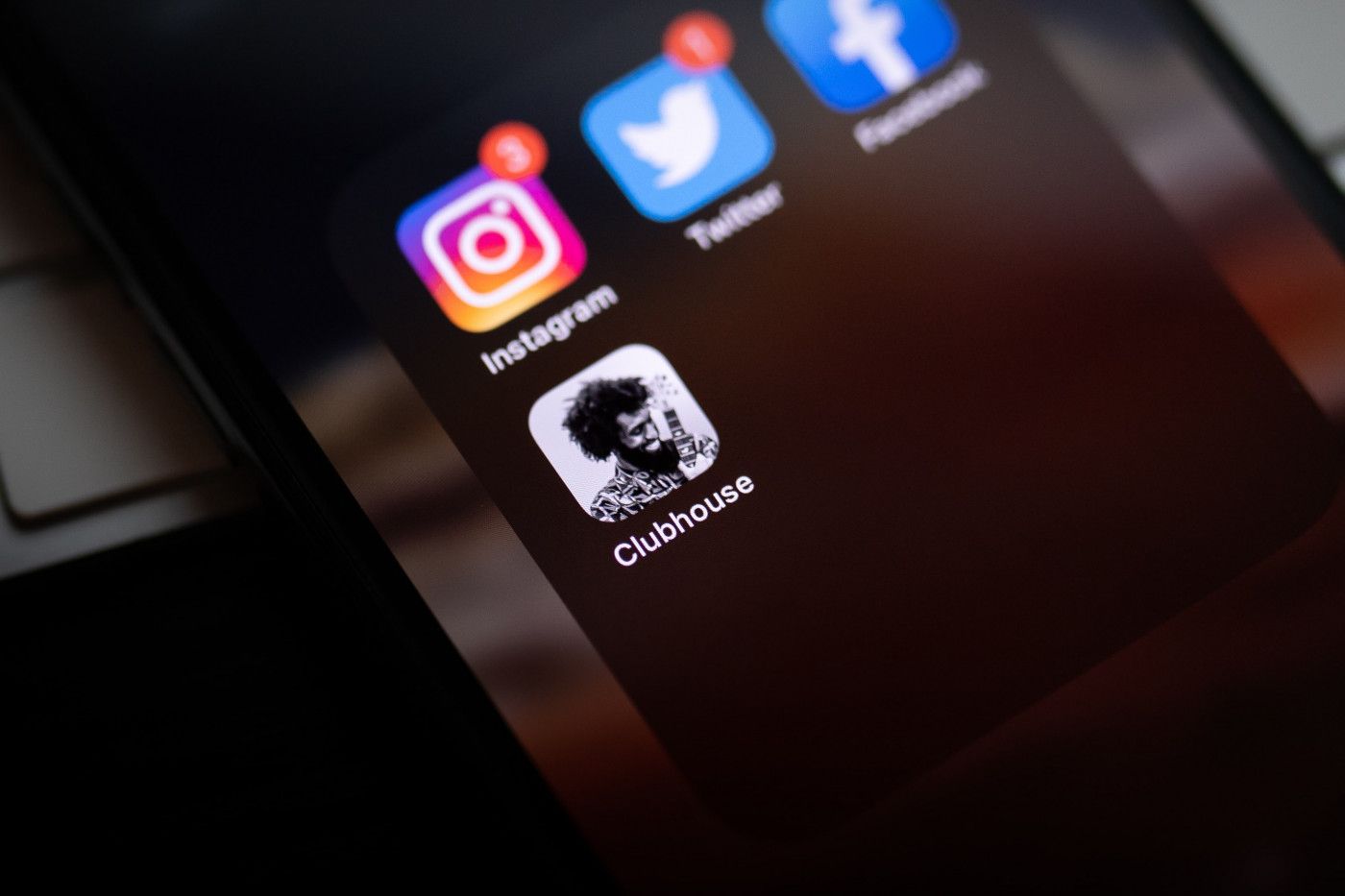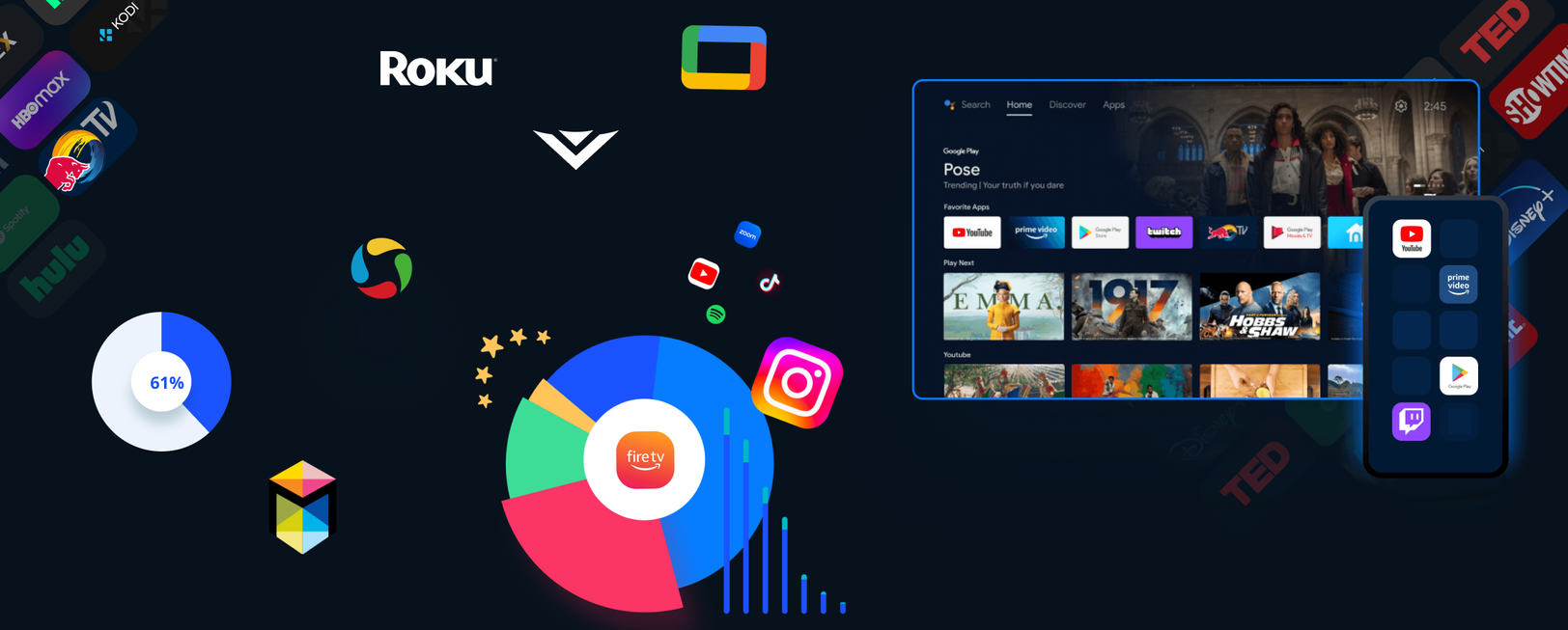Clubhouse is an invitation-only drop-in audio social networking app. Launched in April 2020, during the early days of the COVID-19 pandemic, the app first gained widespread notoriety after Elon Musk was interviewed on Good Time, a show broadcast over the Clubhouse app.
Over the last few months, there’s been a groundswell of conversation across social media concerning a mysterious new app called Clubhouse. Now, the mystery is easy to explain. Clubhouse is invitation only, it’s currently available to iOS devices only, and it’s being championed by a cadre of Silicon Valley insiders like Elon Musk, Marc Andreessen, and Mark Zuckerberg. And, if that weren’t enough, China has already blocked the app for Chinese users.
Nevertheless, the app itself is perhaps a little more difficult to wrap one’s head around — again, it’s invite only. But based on what we’re reading, Clubhouse is unlike any other social media platform currently on the market. According to Mashable, users can jump in and out of different chats, on different subjects, in something approximating a live, free-flowing podcast. Users can either sit back and listen to content from other users or choose to participate in the conversation.
The company describes itself as “a new type of social product based on voice, that allows people everywhere to talk, tell stories, develop ideas, deepen friendships, and meet interesting new people around the world."
Sounds fun! And while we — along with many others — patiently await our invites, we thought we’d take a look at how the Clubhouse app has been faring in the global app market.
How the Clubhouse App Has Performed on the App Store’s Top Charts
To begin, we analyzed the Apple App Store’s top charts. Here’s how Clubhouse has performed globally:
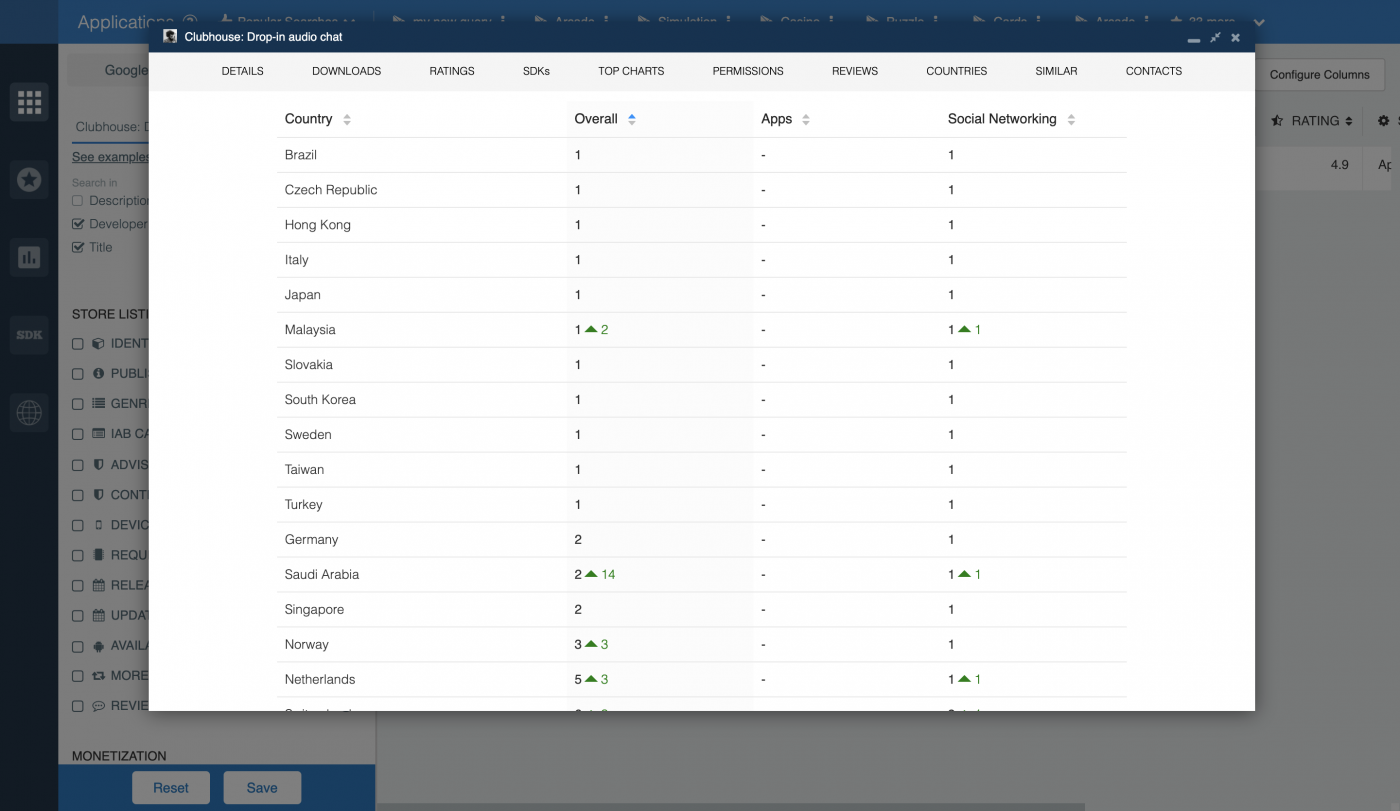
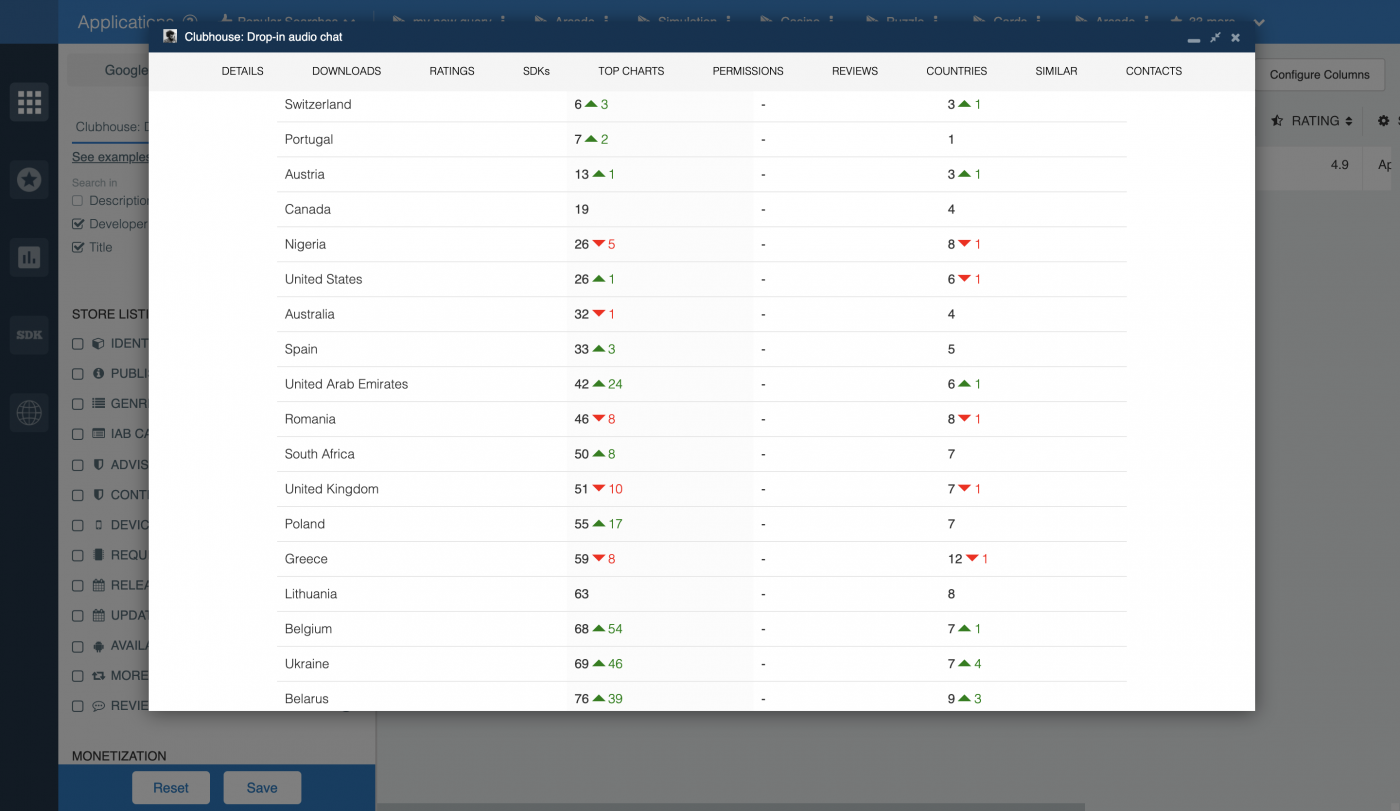
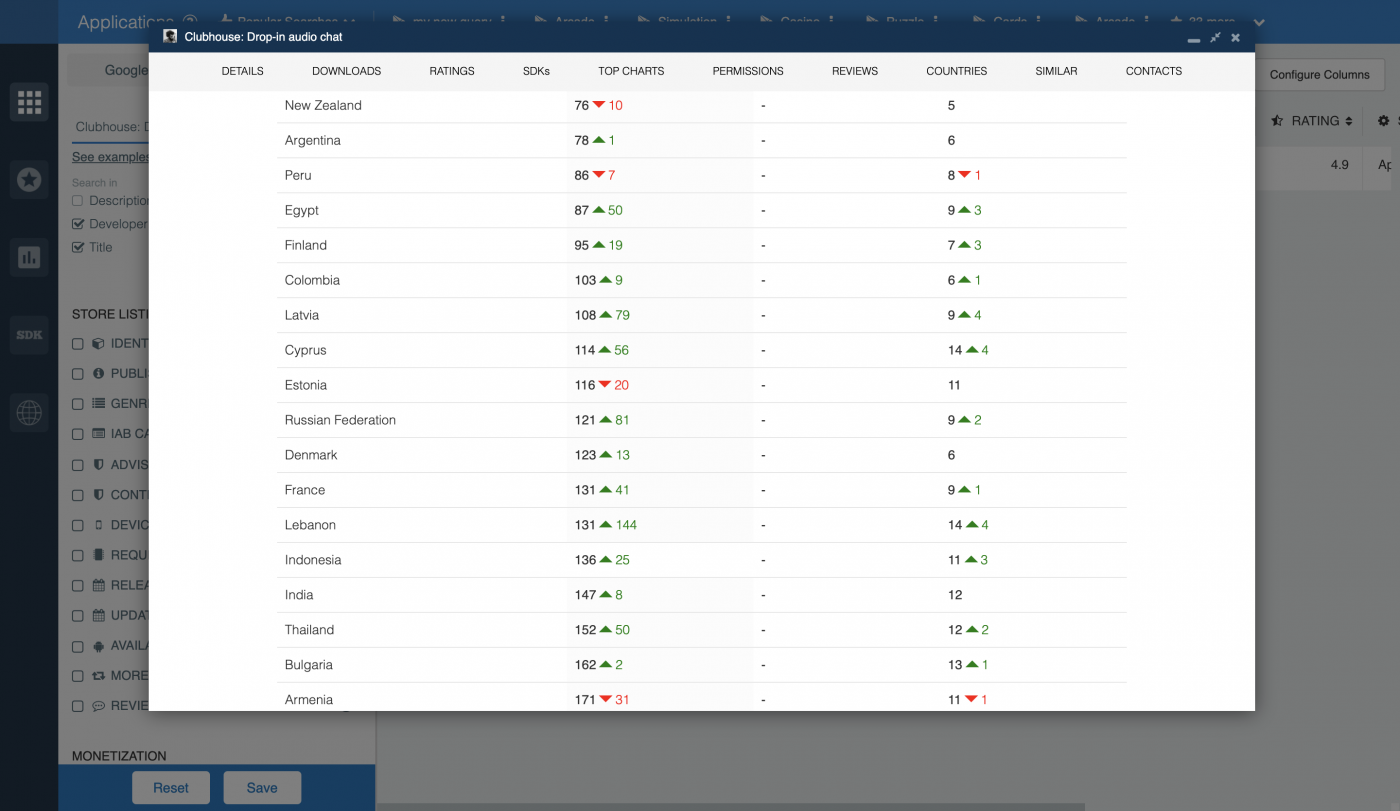
As you can see, despite the invite-only model, Clubhouse has performed admirably, taking the top spot in 11 different countries, placing in the top 10 in seven more, and ranking within the top 50 in 9 more. Not too shabby.
Notably, even in the countries where Clubhouse has underperformed — relatively speaking, of course — it’s star appears to be on the rise. In Lebanon, for instance, the app currently ranks outside the top 100, sitting at 131. However, It climbed a whopping 144 spots since its last ranking. Likewise, in Russia, Clubhouse rose 81 spots and currently sits at 121st. It saw similar gains in Latvia, Thailand, Cyprus, Egypt, and France.
How has Clubhouse Performed in Key Markets?
Now, let’s take a look at five key markets: the United States, the United Kingdom, India, Germany, and Brazil. We’ve calculated how many daily downloads Clubhouse received in each market between April 1, 2020 and February 11, 2021.
Clubhouse App Downloads in the United States (April 1, 2020-February 11, 2021):
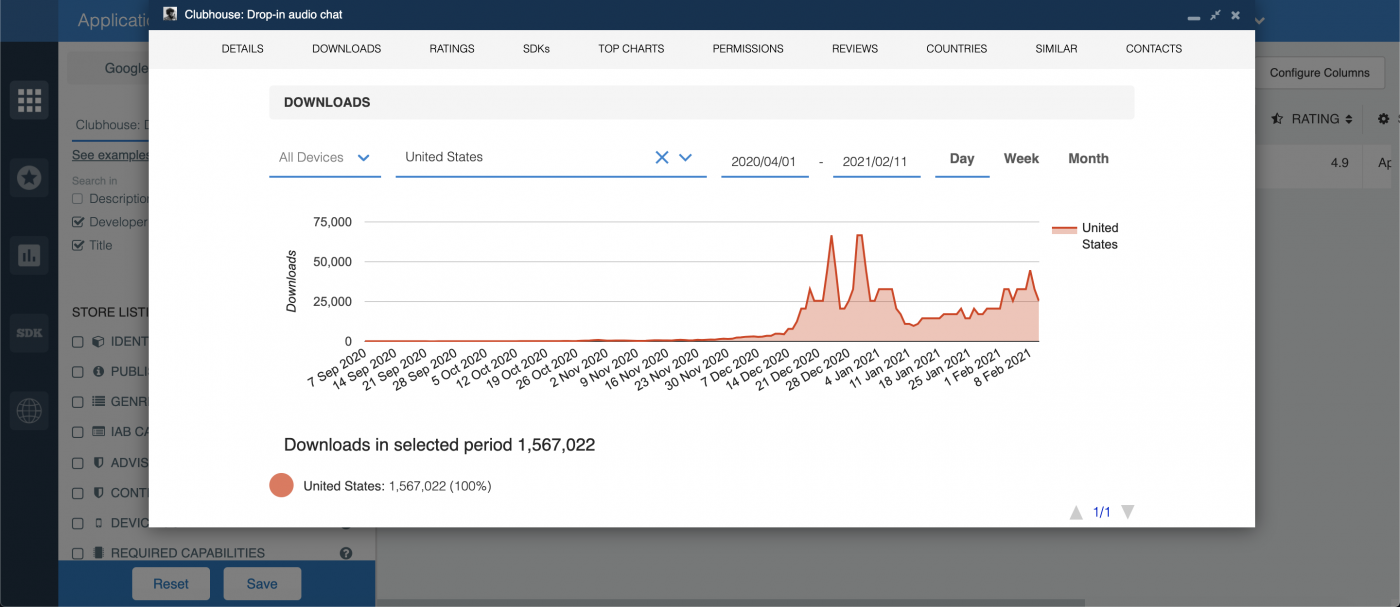
In the United States, Clubhouse reached a high of 66,642 daily downloads on December 31st, 2020. Moreover, the app has generally performed quite well, with an uptick in downloads beginning around mid-November 2020.
Clubhouse App Downloads in the United Kingdom (April 1, 2020-February 11, 2021):
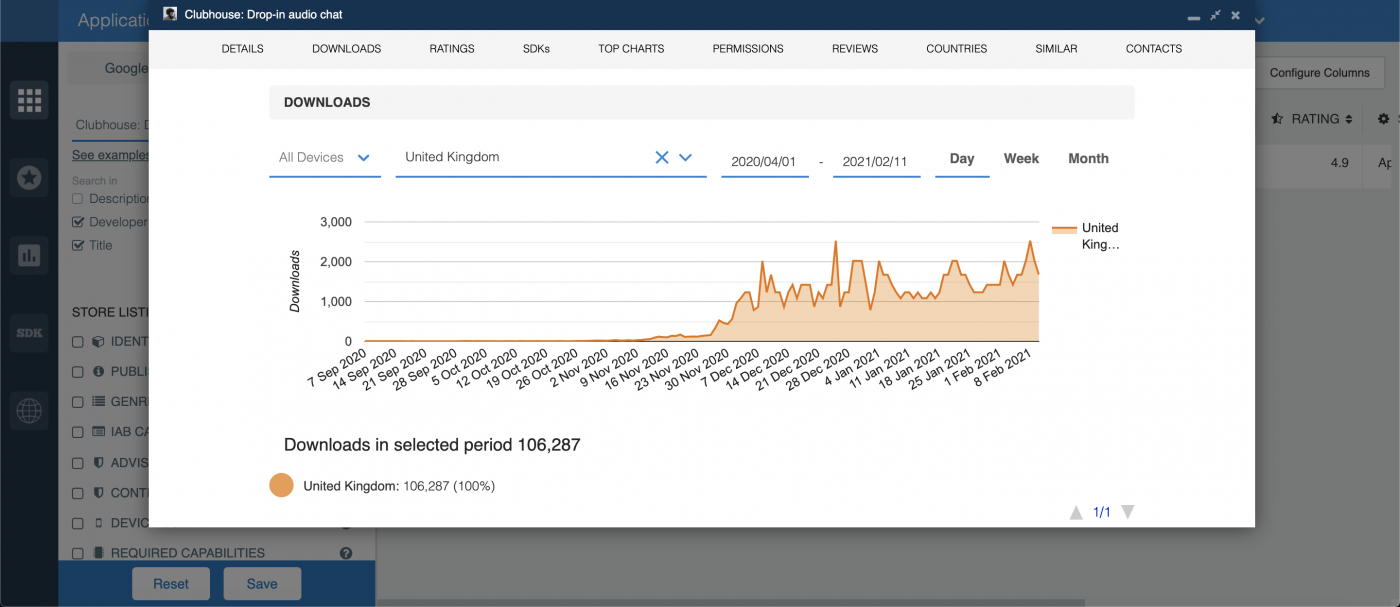
By comparison, Clubhouse has had a paltry showing in the United Kingdom, peaking at 2,527 daily downloads on February 8, 2021. (Pro-tip: keep an eye on the scale of the graph on the y-axis.)
Clubhouse App Downloads in India (April 1, 2020-February 11, 2021):
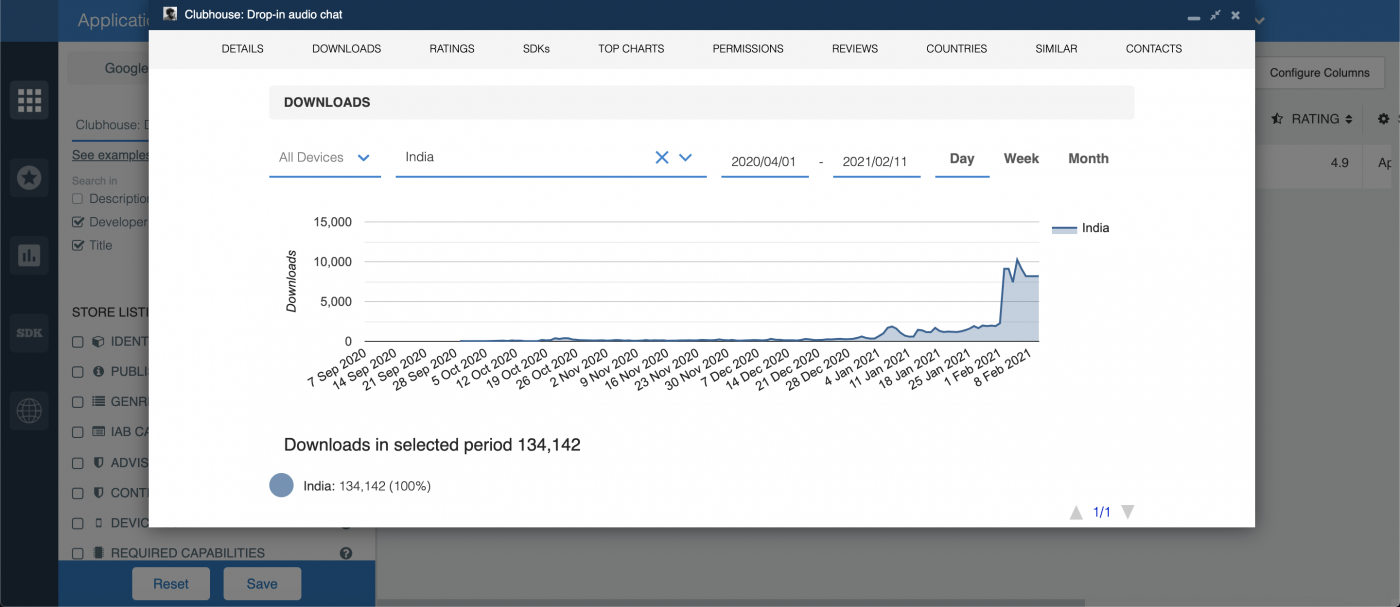
Clubhouse has also had a relatively meager showing in India, where it topped out at 10,248 downloads on February 5, 2021. Of course, there was a big spike on February 1st. So, this may be a country to keep your eye on.
Clubhouse App Downloads in Germany (April 1, 2020-February 11, 2021):
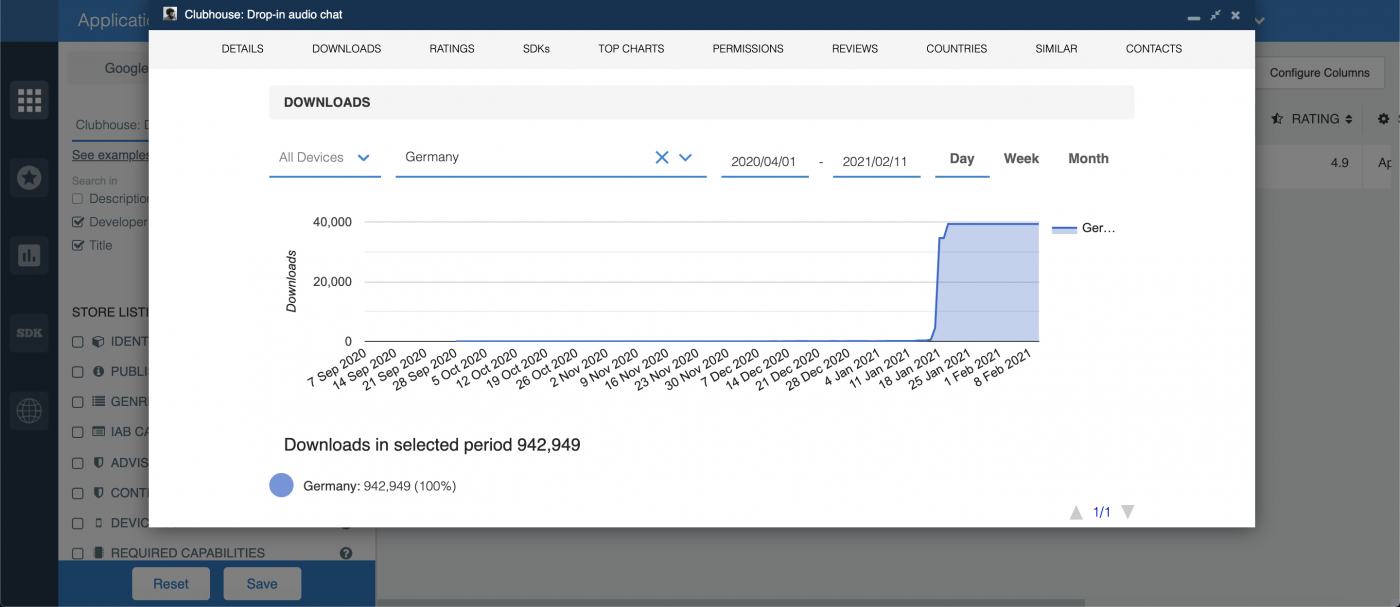
Germany is another country where Clubhouse experienced a big spike in daily downloads, jumping from 94 downloads on January 1, 2021 to 39,325 downloads a month later on February 1, 2021. Downloads have also remained remarkably high thus far throughout February.
Clubhouse App Downloads in Brazil (April 1, 2020-February 11, 2021):
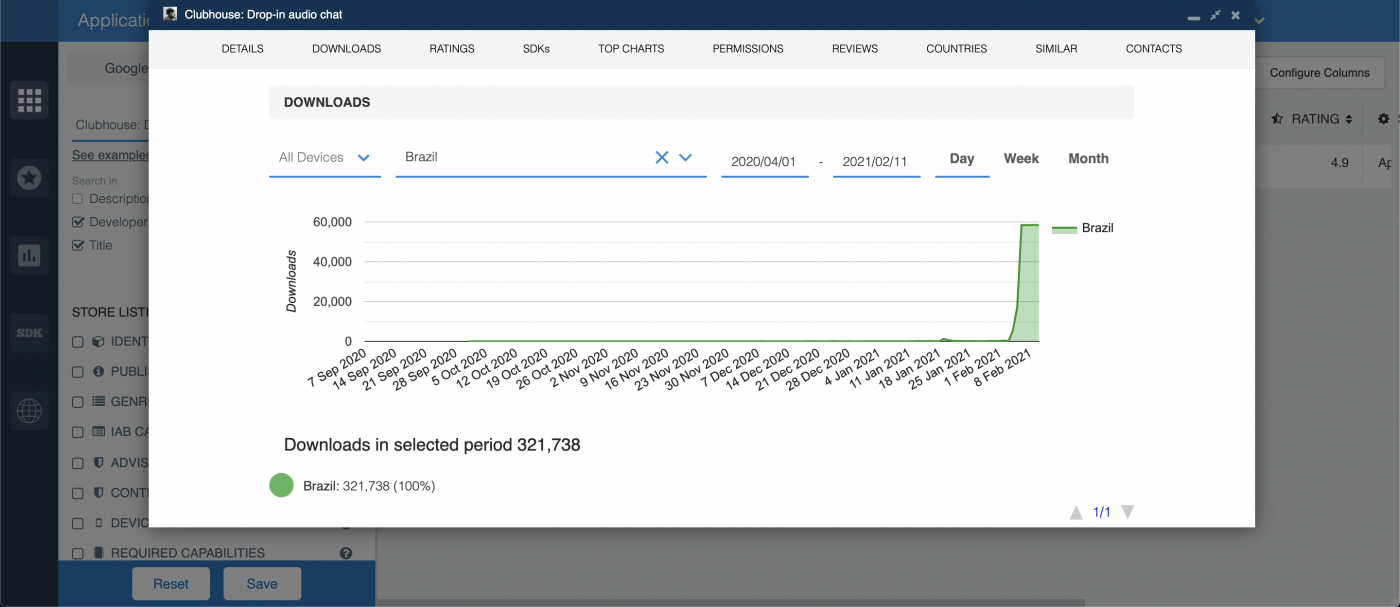
Last, but certainly not least, Brazil, where Clubhouse currently occupies the top spot on Apple’s Top Charts. Aside from a blip in the middle of January, the app never broke 1,000 daily downloads. Then came February, when downloads began to take off. On February 6, 2021, Clubhouse registered a whopping 58,440 daily downloads across Brazil.
Conclusion
Now, it may be too early to make any conclusive determinations about the future prospects of Clubhouse; but it might be time to start believing the hype. Indeed, with vocal support from the guy currently trying to make humanity a multiplanetary species, Clubhouse is leveraging tried and tested exclusivity tactics to create temporary scarcity that fuels growth.
The real question is, how long will the hype last? Can they turn this thing into the next Twitter, or will it go the way of Myspace and fidget spinners? Whatever happens, there seems to be increasing demand for alternative communications and social media solutions. From messenger apps like Signal, which leverage end-to-end encryption to keep conversations between users private, to drop-in audio chat apps like Clubhouse.
More App and App Market Intelligence from 42matters
At 42matters, we provide app data, insights, and analytics via a host of useful APIs, file dumps, and the 42matters Explorer. This includes:
- Developer details
- Downloads
- Ratings, reviews, and top chart rankings
- Categories, genres, and IAB categories
- Technical insights, including SDKs, permissions, and app-ads.txt
- And more
The 42matters Explorer, which you can try free for 14 days, is an app market research tool that offers a comprehensive look at app trends and statistics. This includes data on both iOS and Android apps. Moreover, our APIs facilitate programmatic access to app intelligence data from both Google Play and the Apple App Store, as well as the Amazon Appstore, Tencent Appstore, Apple TV tvOS App Store, Amazon Fire TV, and the Roku Channel Store.
To learn more about 42matters, schedule a meeting with one of our app market experts. We’ll walk you through everything.
